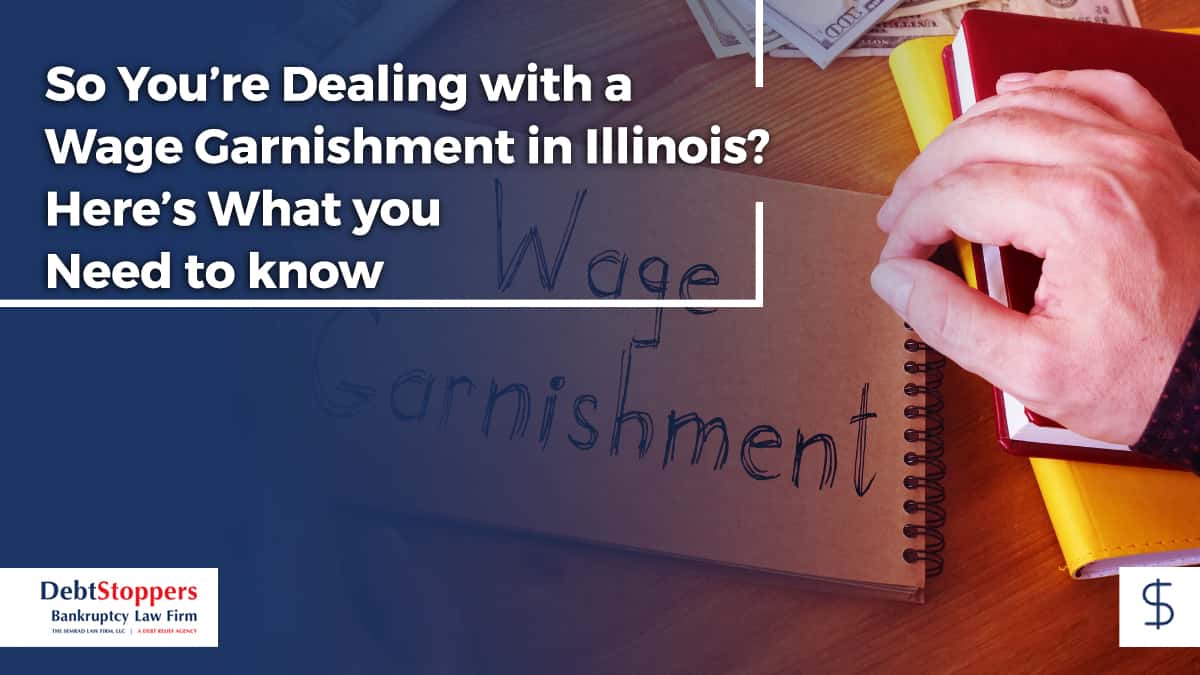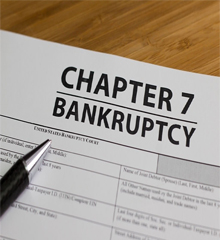So You’re Dealing with a Wage Garnishment in Illinois? Here’s What you Need to Know:
Updated on 16 May 2025

Brief Overview of Wage Garnishment
What is Wage Garnishment?
Wage garnishment, also known as wage attachment, is a legal process wherein a portion of an employee's income is withheld by an employer for the payment of a debt. It's a tool used by creditors to secure payment from borrowers who have defaulted or failed to pay back their debts.
Wage Garnishment in Illinois
In Illinois, wage garnishment is permitted, but there are several limitations in place to protect employees. Creditors must first obtain a court judgment to garnish wages, except for cases involving debts like federal student loans, child support, or taxes. The state caps the amount that can be garnished, ensuring a portion of the employee's income remains untouched.

Understanding the Impact of Wage Garnishment on Your Finances
Wage garnishment can have a significant and far-reaching impact on your finances. When a portion of your wages is withheld to pay off debts, it affects your immediate income and your long-term financial stability. Understanding the impact of wage garnishment will help you plan accordingly and explore ways to minimize its effects.
The most direct impact of wage garnishment is the reduction in your take-home pay, which can significantly reduce the amount of money available for daily living expenses. With less money available, you may struggle to pay for essential living expenses and may fall behind on bills, which can lead to late fees, higher interest charges, and a negative impact on your credit score if you miss payments.
If you have multiple debts and creditors, you could face additional garnishment orders, further reducing your income. While federal law limits the total amount that can be garnished from your wages, it’s possible to have multiple garnishments from different creditors, compounding the financial strain.
The garnishment itself doesn’t directly lower your credit score, but the circumstances leading to it can significantly damage your credit score. A lower credit score can make it harder to qualify for loans or credit cards in the future. Even if you get approved, you may face higher interest rates and less favorable terms due to your credit history.
In some cases, your employer or the creditor may charge administrative fees for processing the garnishment. These fees can further reduce your take-home pay, leaving you with even less disposable income. Additionally, if the creditor had to go to court to obtain the garnishment order, you may be responsible for paying court costs, attorney’s fees, or collection fees, adding to the total amount you owe.
Given the complexities of state and federal law, it’s advisable to consult with an experienced bankruptcy or consumer protection attorney who can help you explore your options for challenging the garnishment or managing your debt more effectively. Filing for bankruptcy not only stops the wage garnishment, it provides a path to financial recovery.
How it Works
When a creditor gets a court order for wage garnishment, the employer is mandated to withhold a certain amount from the debtor's paycheck. This amount is usually 15% of the gross paycheck, which can be more that 25% of your take home pay. This amount is then forwarded directly to the creditor.
Legal Process Involved
Before initiating wage garnishment, most creditors are required to sue the debtor and obtain a judgment. Once they have the judgment, they can request the court to issue a wage garnishment order, which is then served to the employer.
Illinois Wage Garnishment Exemptions
Types of Exemptions Available
Illinois law provides various exemptions to ensure that individuals undergoing wage garnishment can still meet their essential living expenses.
Head of Household Exemption
If an individual is the primary breadwinner in their household or supports dependents, they may be eligible for exemptions to protect a larger portion of their wages.
Low Income Exemption
Illinois has provisions to protect those earning a low income from wage garnishment. For instance, wages may not be garnished to an extent where an individual's earnings drop below a threshold set at 45 times the federal minimum wage.
Others
Some incomes, like Social Security, Supplemental Security Income (SSI), unemployment compensation, and certain retirement benefits, are exempt from wage garnishment in Illinois.
How to Apply for Exemptions in Illinois
If facing wage garnishment, one should promptly consult an attorney to understand the available exemptions. Typically, you'll need to file a claim for exemption with the court, providing evidence for your eligibility. The court will then evaluate the claim and, if approved, adjust the garnishment accordingly.
Consequences of Wage Garnishment in Illinois
Having wages garnished can lead to financial strain and challenges in meeting daily expenses. Besides the financial implications, it can affect one's credit score and even strain the relationship with employers, as they're involved in the garnishment process.
Can You Have Multiple Wage Garnishments in Illinois?
While it's possible to have more than one wage garnishment, federal law protects employees. An employer cannot terminate an employee because of multiple wage garnishments for a single debt. However, protections might not apply if there are garnishments for multiple debts.

How Long Does Wage Garnishment Last?
Wage garnishment will continue until the debt is fully paid or other legal actions are taken to stop the garnishment. In some cases, if the debt amount is significant, garnishment could last for years.
To sum it up, wage garnishment is a tool for creditors to ensure they get paid, but Illinois has several protections in place for debtors. Understanding these can help individuals navigate the challenges of wage garnishment and seek relief when necessary.
What Can I Do?
Being threatened with wage garnishment can feel overwhelming and stressful. But remember, in times of financial uncertainty, knowledge and timely action are your strongest allies.
The very first step in navigating any challenging debt situation is to consult experts who can guide you. If wage garnishment is looming over your horizon, it might be time to consider speaking with a bankruptcy attorney. Not sure where to start? We're here to help.
At DebtStoppers, we pride ourselves on being the nation's largest consumer bankruptcy firm. By reaching out to a firm like ours, you can schedule a free consultation with some of our most experienced attorneys. We're committed to giving you all the time you need, ensuring you have clarity on your situation and can chart out the best course of action.
Worried about the stigma attached to bankruptcy? It's essential to remember that less than half of the individuals who consult with us end up filing for bankruptcy. Our primary goal isn't to push you into a decision but to guide you towards the best path for your unique situation.
The root of stress in these situations often stems from uncertainty and not having a clear plan. Once you have a strategy tailored for your circumstances, you'll find immediate relief and a renewed sense of direction. So don't wait, take control of your financial future today. Reach out to us at DebtStoppers and let's build your roadmap to financial peace of mind
Long-Term Strategies for Recovering from Wage Garnishment
You can gain control of your finances and rebuild your financial health after wage garnishment with the right long-term strategies.
Start by assessing your current finances and creating a comprehensive budget. This will help you identify where your money is going and where you can cut unnecessary expenses.
You should focus on creating a realistic budget that allocates funds for essential living expenses, debt payments, and savings. Do your best to stick to this budget!
After garnishment ends, make a plan to pay off any remaining debts as quickly as possible by focusing on high-interest debts first to save money on interest over time. During this time, you should avoid accumulating new debt if possible; and focus on rebuilding your credit score by making timely payments and using credit responsibly. You should also review your progress regularly and track milestones, which can keep you motivated and help you adjust your strategy if needed.
After wage garnishment, avoid using high-cost lending options, which can trap you in a cycle of debt. Avoid payday loans, title loans, or other predatory lenders that charge astronomical fees and interest rates. It’s important to only borrow from reputable sources and always read the fine print before taking on any new loans.
By implementing these long-term strategies, you can rebuild your financial health, reduce the chances of future wage garnishments, and move toward a more stable financial future.





